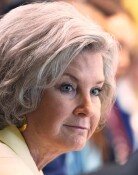[Editorial] Chung UN`s Unwavering Principles
[Editorial] Chung UN`s Unwavering Principles
Posted September. 22, 2009 07:59,
Prime Minister-nominee Chung Un-chan attended the first day of his two-day confirmation hearing yesterday at the National Assembly. The most contentious matter was his position on Sejong City, an administrative city under construction in the central Chungcheong region. I believe the construction will result in administrative inefficiency for the nation as a whole. I havent found a great alternative yet, but more efforts are needed to make the city self-sufficient, he said. He thus maintained his earlier stance that the original plan be revised. Immediately after his designation Sept. 3, he had said pushing ahead with the original plan is inefficient from an economists point of view.
Though South Chungcheong Province is Chungs hometown and he supports balanced regional development as an economist, he stood firm in his conviction at the hearing, saying There seems to be self-sufficiency issues with the city, so we need to discuss them. Prior to the hearing, the floor leader of the ruling Grand National Party, Ahn Sang-soo, said, Its up to the prime minister-nominee himself to point out the issues he has with Sejong City. Such a comment, however, hardly shows a sense of responsibility on the part of the ruling party.
Experts have criticized the Sejong City project as the most populist of its kind since the countrys liberation from Japanese rule in 1945. In the 2002 presidential election, then candidate Roh Moo-hyun spontaneously pledged to move the capital to win over Chungcheong voters. His pledge was later ruled unconstitutional, however, and degenerated into a debate over the division of the capital with ill intent.
Sejong City was not listed as one of Rohs key policies in the posthumous publication of his memoirs yesterday. While he mentioned building administrative and innovative cities and moving public institutions out of Seoul for balanced regional development, he failed to mention Sejong City. This raises the question of whether he omitted his gravest policy mistake because the original plan no longer seemed viable or was simply not good enough to be one of his achievements.
Chung said, Keeping the pledge to build Sejong City does not mean the government has to stick to the original plan. The population of the proposed city on an area half the size of Seoul (297 square kilometers) will be far below 50,000 even if public servants from 35 institutions, their families and employees at nearby commercial districts and schools are counted, according to one analysis. Furthermore, public servants are likely to move alone to the new city or could commute to work from Seoul after an express railroad is built. So if the Sejong City project, which is being propelled by purely political intentions, proves to be a huge waste of money and a source of administrative inefficiency due to lack of self-sufficiency, the government has no reason not to change the original plan.
Rather, the focus should be on finding a reasonable alternative for spending 22.5 trillion won (18.6 billion dollars) assigned for the project. The aim should be to enhance national efficiency and promote the Chungcheong regions development. Chung is the right person to revamp the project through ideas from residents and experts.




![‘치매머니 사냥’ 요양원의 비극…701호 동생, 702호 아들에 뜯겨[히어로콘텐츠/헌트③-上]](https://dimg.donga.com/c/138/175/90/1/wps/NEWS/IMAGE/2025/12/16/132980393.1.jpg)


